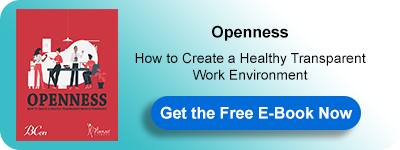Openness and Relationships
Openness seems to be beneficial in people’s relationships. Because openness involves a willingness to consider that one might be wrong and being open to other views, people who are more open tolerate differences of opinion better than those who are less open. So, open people have fewer conflicts with other people than less open people do. Studies have also shown that people who are high in openness tend to be less prejudiced than people low in openness. In light of all of this, it’s not surprising that open people tend to report that their relationships with other people are more satisfying. They tend to get along with people better, and other people tend to like them more.1
Because openness is based on building deeper ties, it usually is the last phase to emerge in the development of a human relationship or of relations within a group, as the relationship continues; openness has to do with the degree to which we literally or figuratively embrace each other.2
Why Openness is Inevitable Today
In our fast-paced world in which information availability is considered an original human right that is guaranteed by most nations’ constitutions, openness became uncontroversial and covers some psychological need of calm and assurance. An open, empowered culture builds a community of trust. Most people want to be part of something worth doing at work - and want to feel safe and able to thrive. If led and supported well, this develops a grown-up culture of shared ownership and accountability for what is really going on between people.
In addition, the more this becomes normal, the less likely it is that things are hidden or held back, as it becomes even likelier that employees will share more. This creates a generative cycle of being easier to do - as it becomes normal and safe to do – in fact, a valued business imperative.
1https://www.thegreatcoursesdaily.com/openness-big-five-personality-types-explained/
2Schutz, Will. The Human Element : Productivity, Self-esteem, and the Bottom Line. 2nd ed.,The Schutz Company, 2008, p42.
For more about this topic, download our latest book "Openness" for FREE:
